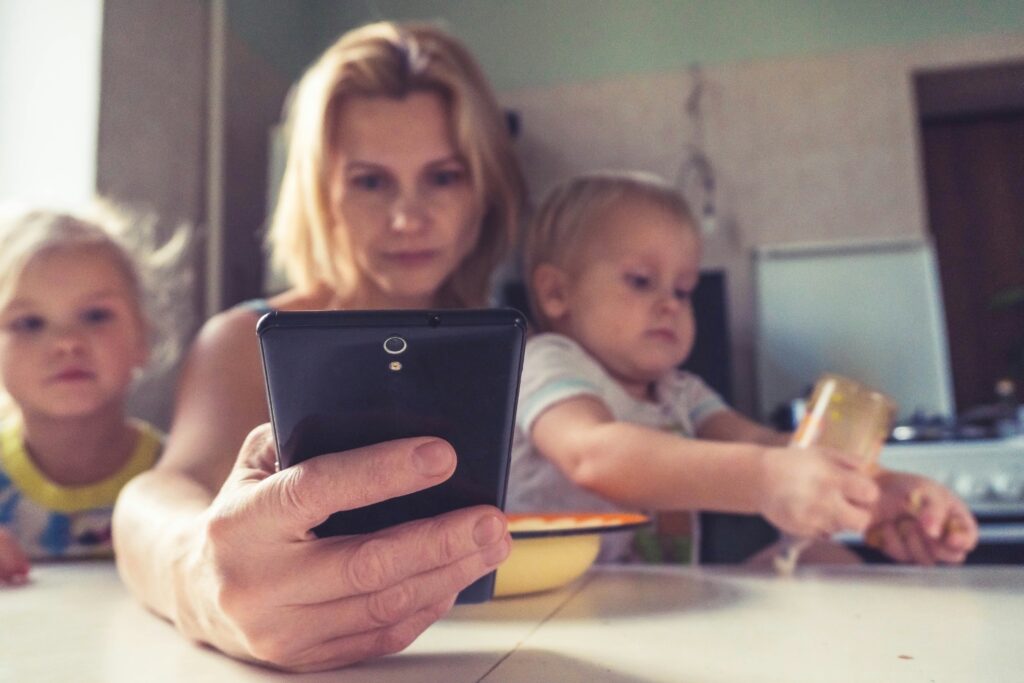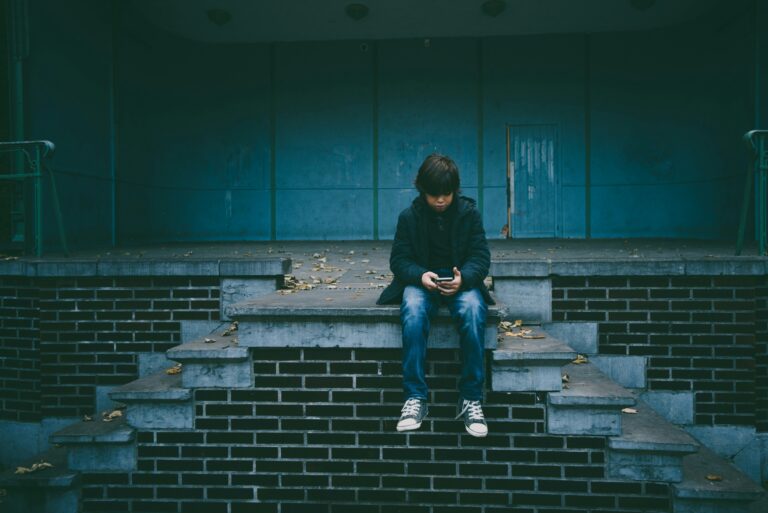Understanding Burnout and Smartphone Addictions: A Path Forward
Smartphones have woven themselves into the fabric of our lives, becoming essential tools for communication, memory-making, online shopping, staying informed, learning, enjoying music, and watching our favorite shows.
This convenience has undeniably made our lives easier and more enjoyable, placing a world of possibilities right in the palm of our hands.
However, as we navigate this modern landscape, it’s important to reflect on a few meaningful questions:
- Has the convenience brought by smartphones truly enhanced my happiness?
- Are there potential drawbacks to this constant connectivity and stimulation?
- How can I harness my phone’s advantages while reducing its potential negatives?
For many of us, the answers to the first two questions are quite clear.
While our smartphones offer unparalleled convenience, they don’t necessarily contribute to our happiness.
Numerous studies have linked increased screen time to mental health challenges, such as anxiety, depression, and even suicidal thoughts. The evidence connecting excessive use of digital devices to these issues has been mounting for over a decade.[1]
Recent studies have even started to uncover causal relationships, shedding light on the growing mental health crisis, particularly among youth.[2]
It’s interesting that tech companies have employed behavioral psychologists to infuse persuasive elements into their social media applications, expertly designed to keep users engaged.
[1] Additional readings on subject: Khan, Lee, Rosenbaum, Khan, & Tremblay, (2021). Barry, Sidoti, Briggs, Reiter, & Lindsey (2017). Woods, & Scott (2016). Primack, Shensa, Escobar-Viera, Barrett, Sidani, Colditz, & James (2017).
[1] Additional readings on subject: Hunt, Marx, Lipson & Young (2018).Lambert, Barnstable, Minter, Cooper, & McEwan (2022). Thai, Davis, Mahboob, Perry, Adams, & Gold (2023). Brailovskaia, Ströse, Schillack, & Margraf (2020)

Attention, Technology, and Time
This reality highlights a troubling truth:
The term “user” applies to both people using drugs and those using technology.
Furthermore, it’s telling that many tech executives enforce strict screen time limits for their own families, despite promoting addictive behaviors within their companies.
Clearly, smartphones have not been the source of happiness we once hoped for; in fact, they seem to contribute to rising levels of stress, anxiety, and dissatisfaction.
The implications of excessive screen time reach far beyond our mental health; tech companies have, without our consent, claimed a precious resource—our attention.
Prominent psychologist William James astutely remarked, “The quality of our life depends on the quality of our attention.”
This insightful observation has profound relevance today.
I’ve come to recognize that our challenges stem not from the scarcity of time or money, but from a scarcity of focused attention.
Our minds often race with swirling thoughts, worries, and to-do lists.
Though we yearn for presence and peace, we frequently find ourselves distracted—working while spending time with family, browsing the internet during conversations, or checking our phones at the slightest hint of quiet.
Most of us, myself included, scatter our attention across numerous distractions, perpetually problem-solving and reacting to the day’s demands.
This constant busyness can leave us feeling drained.
Seeking break times, we often retreat to our screens.
When we finally attempt to re-engage with our work, we find ourselves faced with tasks that further splinter our attention.
After a tiring day, we look forward to unwinding, yet the cycle continues as we remain tethered to our devices, even during family time or while watching TV.
We often collapse into bed, feeling exhausted and puzzled by how the day slipped away.
Scroll, Feel, Heal
The allure of using our phones as a distraction proves difficult to resist, largely due to the intentionally captivating features embedded in social media platforms.
Tackling this habit requires effort, but it invites us to ask a few essential questions:
- What drives my need for distraction?
- What are the underlying feelings behind my scrolling?
More often than not, the answer to this question points to discomfort.
We may experience unsettling emotions below our awareness, prompting us to seek relief.
These feelings often manifest as boredom, anxiety, or dissatisfaction—typically a cocktail of all three.
At the core of these feelings lie the limiting beliefs we internalized during our formative years.

We have all encountered unkind experiences, ranging from minor inconveniences, like hurtful remarks from peers, to significant traumas, like abuse.
These experiences can give rise to beliefs such as:
- I am not enough (whether it’s feeling unlovable, unintelligent, unattractive, or unsuccessful).
- What I desire is beyond reach (be it love, safety, deep connections, success, or happiness).
- I am different and struggle to connect with others.
These limiting beliefs hold us back from reaching our full potential.
They restrict our happiness, success, and close relationships, ultimately constraining our lives.
These beliefs can lead to feelings of anxiety (like thinking, “I’m not good enough”), boredom (feeling that the life, career, or relationship we desire is unattainable), and discontent (struggling to connect deeply with others).
Such uncomfortable feelings prompt us to seek relief through distractions and fleeting pleasures.
If we want to reduce the time we waste on our phones, we need to address the root cause of this behavior.

Distraction to Purpose
The root cause of our tendency to seek distractions on our phones is this:
Many of us are living far below our potential.
Influenced by limiting beliefs and conditioning from family, friends, and society, we often opt for practical careers instead of pursuing our true passions.
We tend to lead small lives, convincing ourselves that this is all we can achieve.
This underutilized potential inevitably leads to various forms of pain.
It may show up as the discomfort of spending time in a job that doesn’t fulfill us, making us constantly dream of weekends or vacations.
It can also be the ache of longing for our youth when anything seemed possible.
There’s the pain of living on autopilot, often feeling bored, and continuously chasing pleasurable distractions to escape our reality.
Additionally, it includes the regret of what could have been.
This pain is real and significant, even if we don’t always acknowledge it.
In our search for relief, we often seek distractions to ease this pain.
However, acknowledging these underlying emotions is the first step toward creating meaningful changes in our lives.
By addressing these core beliefs and exploring healthier strategies for managing our technology use, we can begin to reclaim our attention and, ultimately, our happiness.
Let’s embark on this journey together, embracing the opportunity for growth in a world filled with potential!
Visit sanjkatyal.com to learn more.
References:
Correlational Studies:
Khan, Lee, Rosenbaum, Khan, & Tremblay, (2021). Dose-dependent and joint associations between screen time, physical activity, and mental wellbeing in adolescents: An international observational study. The Lancet Child & Adolescent Health.
Barry, Sidoti, Briggs, Reiter, & Lindsey (2017). Adolescent social media use and mental health from adolescent and parent perspectives. Journal of Adolescence.
Woods, & Scott (2016). #Sleepyteens: Social media use in adolescence is associated with poor sleep quality, anxiety, depression and low self-esteem. Journal of Adolescence.
Primack, Shensa, Escobar-Viera, Barrett, Sidani, Colditz, & James (2017). Use of multiple social media platforms and symptoms of depression and anxiety: A nationally-representative study among U.S. young adults. Computers in Human Behavior.
Causation Studies:
Hunt, Marx, Lipson & Young (2018). No more FOMO: Limiting social media decreases loneliness and depression. Journal of Social and Clinical Psychology.
Lambert, Barnstable, Minter, Cooper, & McEwan (2022). Taking a One-Week Break from Social Media Improves Well-Being, Depression, and Anxiety: A Randomized Controlled Trial. Cyberpsychology, Behavior, and Social Networking.
Thai, Davis, Mahboob, Perry, Adams, & Gold (2023). Reducing Social Media Use Improves Appearance and Weight Esteem in Youth With Emotional Distress. Psychology of Popular Media.
Brailovskaia, Ströse, Schillack, & Margraf (2020). Less Facebook use – More well-being and a healthier lifestyle? An experimental intervention study. Computers in Human Behavior.









